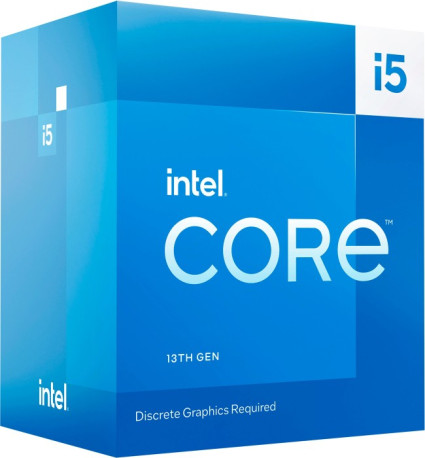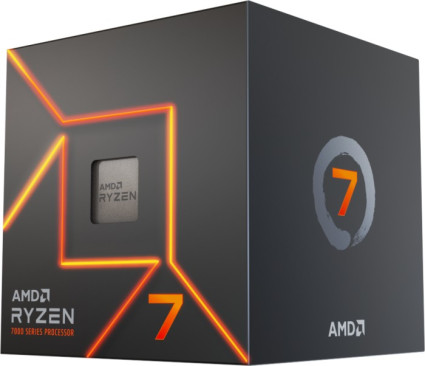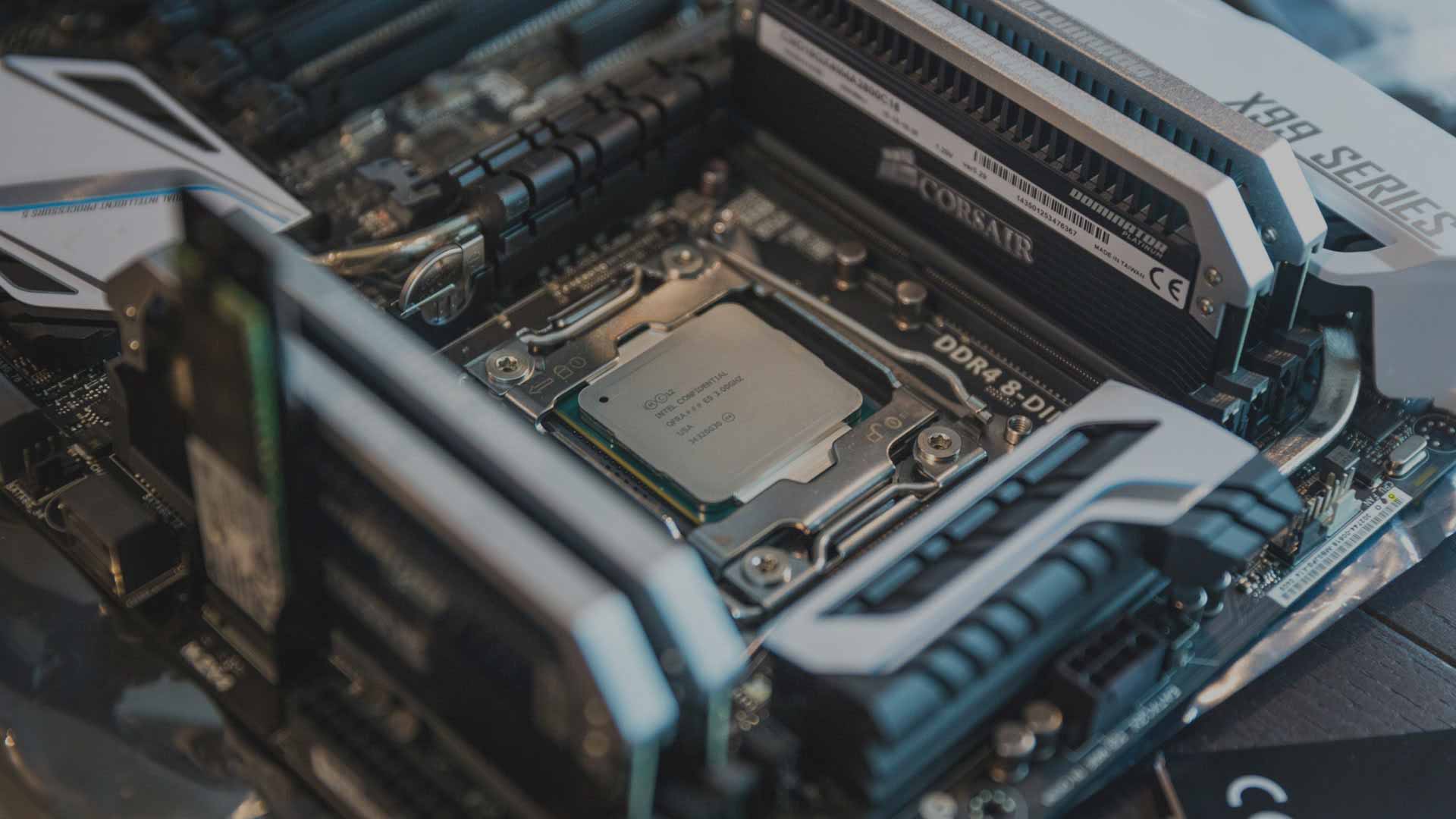
Intel Core i5-13400F vs. AMD Ryzen 7 7700
In diesem Vergleich von Intel Core i5-13400F versus AMD Ryzen 7 7700 vergleichen wir die technischen Daten der beiden CPUs. Welcher Prozessor ist schneller? Hier gibt es FPS & Benchmarks in Gaming und Anwendungen.

Allgemeine Informationen
| Günstigster Preis |
|
|
| Serie | Intel Core i-13000 | AMD Ryzen 7000 |
| Chip-Architektur | Golden Cove oder Raptor Cove (P-Core) + Gracemont (E-Core) | Zen 4 |
| Codename | Raptor Lake-S | Raphael |
| Produktname | Intel Core i5-13400F | AMD Ryzen 7 7700 |
Spezifikationen
Die Anzahl der Rechenkerne, die maximale Taktrate und die Größe des Cache können sich auf die Leistung in Spielen und Anwendungen auswirken. Mit 10 Kernen bietet der Intel Core i5-13400F deutlich mehr Kerne als der AMD Ryzen 7 7700 mit 8 Rechenkernen. Der maximale Takt liegt beim Intel Core i5-13400F mit 4.60 GHz niedriger als beim AMD Ryzen 7 7700 mit 5.30 GHz. Der Cache ist beim Intel Core i5-13400F mit 9.5 MB L2-Cache + 20 MB L3-Cache zu 8 MB L2-Cache + 32 MB L3-Cache deutlich kleiner als beim AMD Ryzen 7 7700.
| Kerne (Gesamt) | 10 | 8 |
| Anzahl P-Cores | 6C | 8C |
| Anzahl E-Cores | 4c | - |
| Basis-Takt | 2.50 GHz | 3.80 GHz |
| Takt P-Cores | 2.50 GHz | 3.80 GHz |
| Takt E-Cores | 1.80 GHz | - |
| Turbo-Takt | 4.60 GHz | 5.30 GHz |
| Turbo P-Cores | 4.60 GHz | 5.30 GHz |
| Turbo E-Cores | 3.30 GHz | - |
| Gesamter L2-Cache | 9.5 MB | 8 MB |
| Gesamter L3-Cache | 20 MB | 32 MB |
| Fertigung | Intel 7 | TSMC 5 nm (CPU), TSMC 6 nm (I/O) |
| Rechenleistung | - | - |
| Leistungsaufnahme (TDP) | 65W (Processor Base Power) 148W (Maximum Turbo Power) |
65W |
Mainboard-Kompatibilität
Während der Intel Core i5-13400F den Intel 1700 Sockel nutzt, ist der AMD Ryzen 7 7700 mit Mainboards für den Sockel AMD AM5 kompatibel. Die genaue Chipsatz-Eignung und die unterstützten PCIe-Lanes können Sie der Tabelle entnehmen.
| Sockel | Intel 1700 | AMD AM5 |
| Chipsatz-Eignung | B660, B760, H610, H610E, H670, H770, Q670, Q670E, R680E, W680, Z690, Z790 | A620, B650, B650E, B840, B850, X670, X670E, X870, X870E (modellabhängig: PRO 600, PRO 665, X600) |
| PCIe-3.0-Lanes | - | - |
| PCIe-4.0-Lanes | 4x | - |
| PCIe-5.0-Lanes | 16x | 28x (verfügbar: 24) |
RAM-Kompatibilität
Während Sie beim Intel Core i5-13400F bis zu 192 GB vom Typ DDR4/DDR5 im Dual Channel verbauen können, unterstützt der AMD Ryzen 7 7700 bis zu 192 GB DDR5 Arbeitsspeicher.
| Speicher-Controller | DDR4/DDR5 | DDR5 |
| Anzahl Speicherkanäle | Dual Channel | Dual Channel |
| max. Speichermenge | 192 GB | 192 GB |
| ECC-Unterstützung | - | ✓ |
Grafik
| iGPU | - | ✓ |
| iGPU-Modell | - | AMD Radeon Graphics |
| iGPU-Takt | - | 0,40-2,20GHz |
| iGPU-Einheiten | - | 2CU/128SP |
| iGPU-Rechenleistung | - | 0.56 TFLOPS (FP32) |
| iGPU-Architektur | - | RDNA 2, Codename "Raphael" |
| iGPU-Interface | - | DP 2.0, HDMI 2.1 |
| iGPU-Funktionen | - | 4x Display Support, AMD Eyefinity, AMD FreeSync 2, AV1 decode, H.265 encode/decode, VP9 decode, DirectX 12.1, OpenGL 4.5, Vulkan 1.0 |
Sonstiges
| Freier Multiplikator | - | ✓ |
| Stepping | B0/C0, Spec Code: SRMBG/SRMBN | RPL-B2 |
| Heatspreader-Kontaktmittel | Metall/verlötet | Metall/verlötet |
| Temparatur max. | 100°C (Tjunction) | 95°C (Tjmax) |
| Fernwartung | - | - |
| Einführung | 2023/Q1 (3.1.2023) | 2023/Q1 (14.1.2023) |
| Herstellergarantie | 5 Jahre bei Intel® Boxed-Prozessoren durch erweiterte Garantieunterstützung (Info EN) | 3 Jahre bei AMD® Boxed-Prozessoren (Info EN) |
CPU-Funktionen
| AES-NI | ✓ | ✓ |
| AVX | ✓ | ✓ |
| AVX2 | ✓ | ✓ |
| Boot Guard | ✓ | - |
| CET | ✓ | - |
| DL Boost | ✓ | - |
| EIST | ✓ | - |
| GNA 3.0 | ✓ | - |
| Idle States | ✓ | - |
| Instruction Set | ✓ | - |
| ISM | ✓ | - |
| MBEC | ✓ | - |
| Optane Memory Support | - | - |
| OS Guard | ✓ | - |
| Secure Key | ✓ | - |
| Speed Shift | ✓ | - |
| SSE4.1 | ✓ | ✓ |
| SSE4.2 | ✓ | ✓ |
| Thermal Monitoring | ✓ | - |
| VMD | ✓ | - |
| VT-d | ✓ | - |
| VT-x | ✓ | - |
| VT-x EPT | ✓ | - |
| XD Bit | ✓ | - |
Spiele
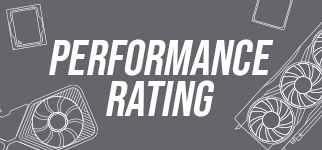
- AMD Ryzen 7 7700AVG129.37 %1%120.88 %
- Intel Core i5-13400FAVG100.00 %1%100.00 %

- Intel Core i5-13400FAVG155.1 FPS1%111.6 FPS
- AMD Ryzen 7 7700AVG248.6 FPS1%173.4 FPS
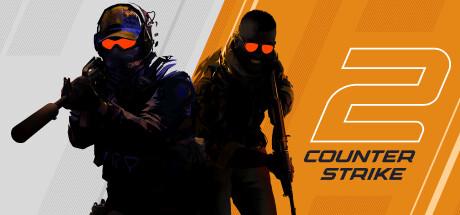
- Intel Core i5-13400FAVG436.9 FPS1%248.5 FPS
- AMD Ryzen 7 7700AVG688.1 FPS1%339.2 FPS

- Intel Core i5-13400FAVG120.8 FPS1%83.8 FPS
- AMD Ryzen 7 7700AVG166.8 FPS1%103 FPS

- Intel Core i5-13400FAVG170.4 FPS1%119.6 FPS
- AMD Ryzen 7 7700AVG194 FPS1%145.9 FPS

- Intel Core i5-13400FAVG120.9 FPS1%89.3 FPS
- AMD Ryzen 7 7700AVG133.5 FPS1%89.5 FPS

- Intel Core i5-13400FAVG187.7 FPS1%123.5 FPS
- AMD Ryzen 7 7700AVG244.6 FPS1%142 FPS

- Intel Core i5-13400FAVG69.4 FPS1%52.1 FPS
- AMD Ryzen 7 7700AVG77.6 FPS1%60 FPS
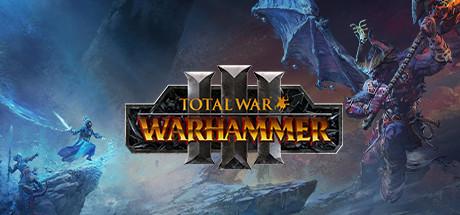
- Intel Core i5-13400FAVG211.8 FPS1%128.1 FPS
- AMD Ryzen 7 7700AVG238.7 FPS1%128 FPS

- AMD Ryzen 7 7700AVG1.00 FPSIntel Core i5-13400FAVG1.57 FPS

- AMD Ryzen 7 7700AVG3.48 FPSIntel Core i5-13400FAVG2.79 FPS
Produktivität
Produktivität

- AMD Ryzen 7 7700AVG127.03 %Intel Core i5-13400FAVG100.00 %

- AMD Ryzen 7 7700PKT122378 PunkteIntel Core i5-13400FPKT82986 Punkte

- AMD Ryzen 7 7700PKT1435 PunkteIntel Core i5-13400FPKT1230 Punkte

- AMD Ryzen 7 7700PKT885 PunkteIntel Core i5-13400FPKT714 Punkte
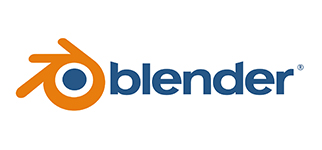
- AMD Ryzen 7 7700SEK283 SekundenIntel Core i5-13400FSEK420 Sekunden

- AMD Ryzen 7 7700PKT1071 PunkteIntel Core i5-13400FPKT827 Punkte

- AMD Ryzen 7 7700PKT2990 PunkteIntel Core i5-13400FPKT2387 Punkte

- AMD Ryzen 7 7700PKT15007 PunkteIntel Core i5-13400FPKT12541 Punkte

- AMD Ryzen 7 7700SEK72 SekundenIntel Core i5-13400FSEK94 Sekunden
